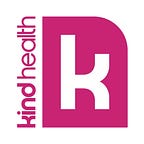How Covid-19 caused people to rethink their financial security — and the role insurance can play
Protection from financial ruin became a chief concern for many after 2020. Loved ones unexpectedly passed, jobs were lost and other hardships were felt.
In response to these events, people — especially younger generations — realized their vulnerability. They suddenly began to think about insurance products they’d previously declined or had never seriously considered.
The risks causing the most uneasiness
According to consultancy Ernst and Young, three out of four anticipate making financial preparations due to the Covid-19 pandemic.
76% cite losing a loved one earlier than expected as their top concern, while 73% say they worry about their overall financial well-being. Fears around being financially protected have 50% planning to save more. Another 30% intend to develop emergency plans. Finally, 23% will speak with some sort of financial advisor.
Given these concerns, it’s no surprise that premium growth for life insurance grew 55% in North America in 2021 (according to a 2022 Allianz report). Expectations for life insurance products have also shifted in response to the pandemic. 77% of those seeking a life insurance policy state they seek products that pay for hospitalization expenses and 74% prefer plans that allow access to funds in the event of an emergency.
In the life insurance sector alone, Allianz reported that 21% of Gen Z, 16% of Millennials, and 13% of Gen X want to increase their coverage amid the Covid-19 outbreak. In exchange for tailored recommendations, 69% say they would share personal data in exchange for lower prices from insurers. 66% also admit they would be willing to provide more health data in exchange for customized rates.
How KindHealth is responding to these changing needs
As of late 2022, KindHealth has focused more on ancillary and supplement insurance products to offer individuals greater financial protection in tumultuous times. We currently offer dental, vision, and accident plans with a planned expansion into short-term medical, short-term disability, and term life insurance by 2023.
While many insurers will rush to capitalize on people’s growing concerns, they’ll merely be selling products. KindHealth, however, has advice at the core of our offering. That’s because we believe proper financial protection is achieved when customers have what they need and no more. Using customer-provided data, AI, and machine learning, KindHealth recommends a coverage bundle that best minimizes risk. We also continually re-evaluate customers’ portfolios and suggest products that are a better fit (less liability, cheaper cost, etc.).
Unlike others, we’ll be able to provide the peace of mind that can only come from being given a holistic strategy vs. blindly buying what may or may not be suitable coverage from a website or marketplace.
Furthermore, as recently as 2020, only 1.9% of insurance products were sold direct-to-consumer, meaning there’s tremendous growth potential for a platform like KindHeath. Giants like AFLAC are only beginning their direct-to-consumer journey, and those with D2C experience (like National General) generally need better digital experiences. By starting this journey in 2022, KindHealth is already ahead of most of the market.
To learn more, visit KindHealth today.
###
About KindHealth
KindHealth is an AI-powered platform that provides and maintains a personalized insurance strategy for individuals and families to help them protect against financial risk by guiding them to the best coverage for their specific needs. Visit https://www.kindhealth.co.
Photo credit: “Finance — Financial injection — Finance” by @Doug88888 is licensed under CC BY-NC-SA 2.0.
